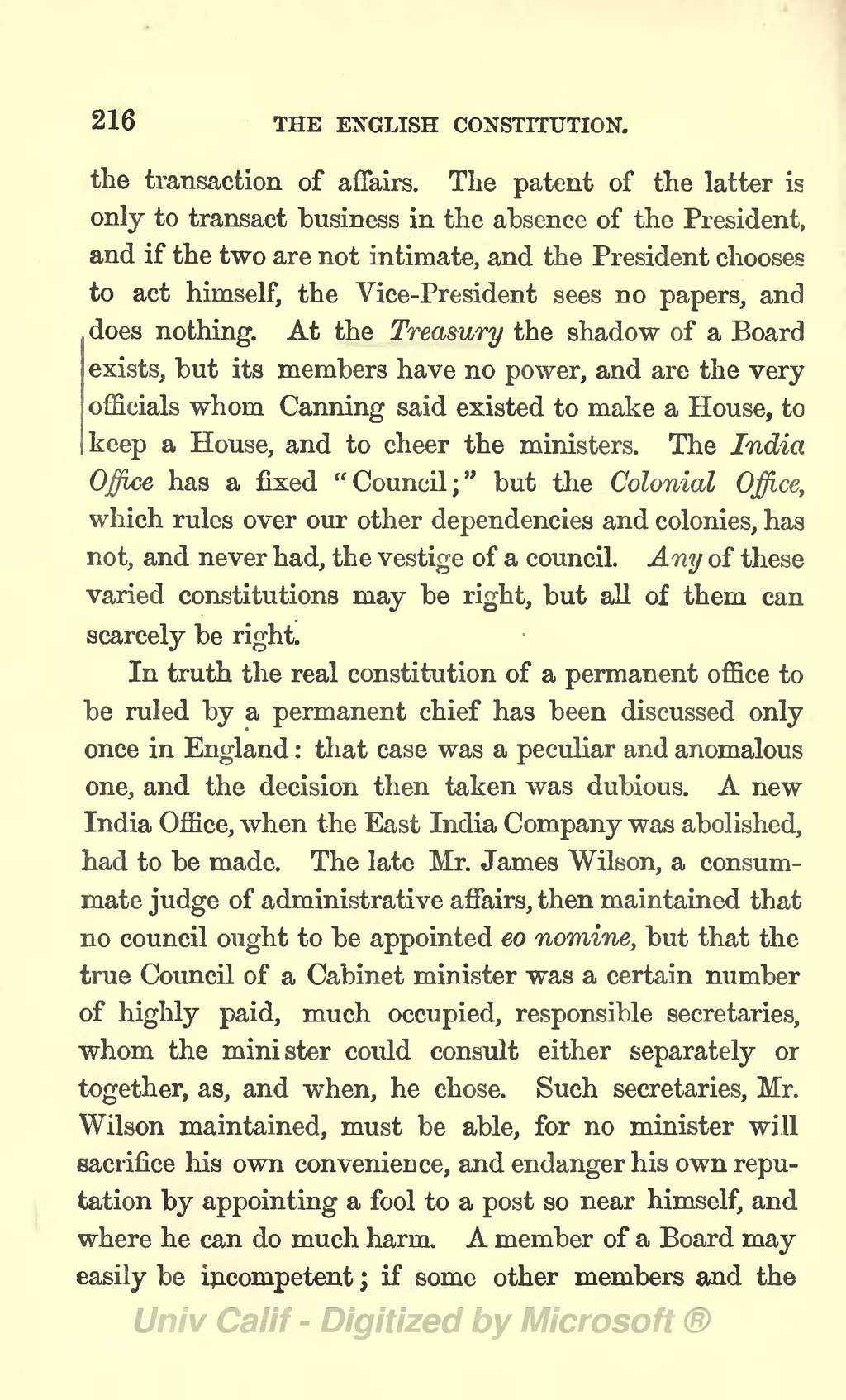the transaction of affairs. The patent of the latter is only to transact business in the absence of the President, and if the two are not intimate, and the President chooses to act himself, the Vice-President sees no papers, and does nothing. At the Treasury the shadow of a Board exists, but its members have no power, and are the very officials whom Canning said existed to make a House, to keep a House, and to cheer the ministers. The India Office has a fixed “Council;” but the Colonial Office, which rules over our other dependencies and colonies, has not, and never had, the vestige of a council. Any of these varied constitutions may be right, but all of them can scarcely be right.
In truth the real constitution of a permanent office to be ruled by a permanent chief has been discussed only once in England: that case was a peculiar and anomalous one, and the decision then taken was dubious. A new India Office, when the East India Company was abolished, had to be made. The late Mr. James Wilson, a consummate judge of administrative affairs, then maintained that no council ought to be appointed eo nomine, but that the true Council of a Cabinet minister was a certain number of highly paid, much occupied, responsible secretaries, whom the minister could consult either separately or together, as, and when, he chose. Such secretaries, Mr. Wilson maintained, must be able, for no minister will sacrifice his own convenience, and endanger his own reputation by appointing a fool to a post so near himself, and where he can do much harm. A member of a Board may easily be incompetent; if some other members and the
